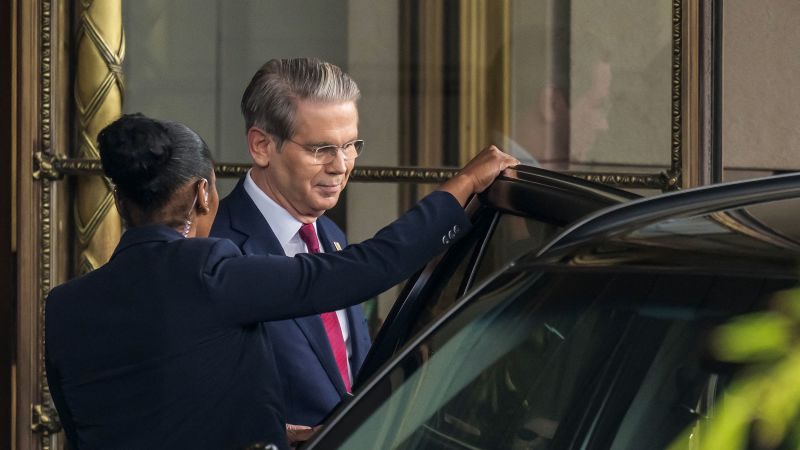Hong Kong/London
CNN
—
High-level talks between the United States and China have begun in Geneva, Switzerland, Chinese state media reported on Saturday, in a possible thaw in the trade war sparked by President Donald Trump’s massive tariffs.
Vice Premier He Lifeng will lead the talks on the Chinese side, while US Treasury Secretary Scott Bessent will be America’s chief representative, state broadcaster CCTV said in a brief report.
Bessent urged the public earlier this week not to expect a major trade deal out of the meetings, but he acknowledged it was an important step in negotiations.
The US has placed a minimum 145% tariff on most Chinese imports, and China has responded with a 125% tariff on most US imports. As a result, trade between the two sides is falling sharply, according to logistics experts.
Even reducing that tariff rate by half still might not be enough to change trade levels significantly. Economists have said 50% is the make-or-break threshold for the return of somewhat normal business between the two countries.
On Friday, hours after Bessent and Trade Representative Jamieson Greer had set off for Switzerland, Trump floated the possibility of slashing tariffs on Chinese goods to 80% while demanding China “open up its market to USA.”
“80% Tariff on China seems right! Up to Scott B,” Trump said in a Truth Social post.
The combination of fewer goods arriving in the US and increased costs on imports that do arrive has already started pushing up prices for Americans. Goldman Sachs analysts said Thursday that a key measure of inflation would effectively double to 4% by the end of the year because of Trump’s trade war.
And with ships carrying goods under the 145% tariffs now coming into port, a trade deal wouldn’t lower prices immediately.
To say Americans depend on a wide range of Chinese goods understates how pervasive they have become in daily life. Footwear, clothes, appliances, microchips, baby goods, toys, sports equipment, office machine parts and much more all pour into the US from China in staggering numbers.
But now those imports are decreasing. Imports into the United States during the second half of 2025 are expected to fall at least 20% year over year, according to the National Retail Federation. The decline from China will be even starker. Investment bank JPMorgan expects a 75% to 80% drop in imports from there.
The trade war has already affected the US economy. The nation’s gross domestic product, the broadest measure of the US economy, showed America’s first quarterly contraction since early 2022, as importers raced to bring in goods before punishing tariff rates kicked in.
The impact of the sky-high tariffs is also being felt keenly in China, whose exports to the US fell sharply in April. Chinese outbound shipments to the US stood at $33 billion last month – a whopping 21% decline from the $41.8 billion recorded in April 2024, according to a CNN calculation.
Steep US tariffs have also taken a heavy toll on China’s manufacturing sector. Chinese factory activity contracted at its fastest pace in 16 months in April, adding urgency to Beijing’s efforts to roll out fresh economic stimulus.
The news that Bessent and Greer would meet their Chinese counterparts in Geneva have raised hopes of a detente between the two nations. The US and China are the world’s largest and second-largest economies, respectively, bigger than even the next 20 economies put together, according to World Bank data.
Trump also told a conservative radio host on Wednesday that he would raise the case of jailed Hong Kong media tycoon Jimmy Lai “as part of the negotiation.” Lai, a pugnacious former publisher whose now shuttered tabloid Apple Daily was a regular thorn in Beijing’s side, is in the midst of a national security trial that could send him to prison for life.
CCTV did not say if Lai featured in the talks.
This story has been updated.

